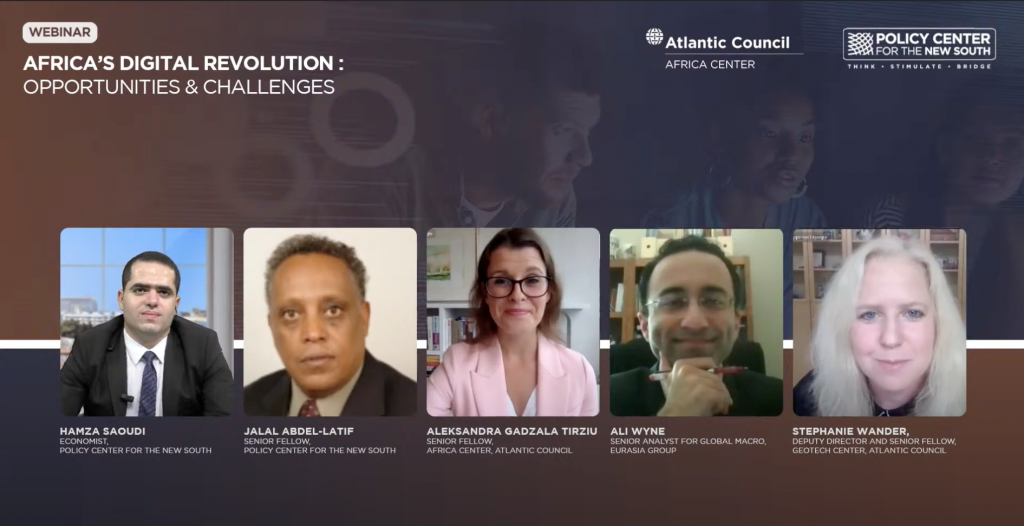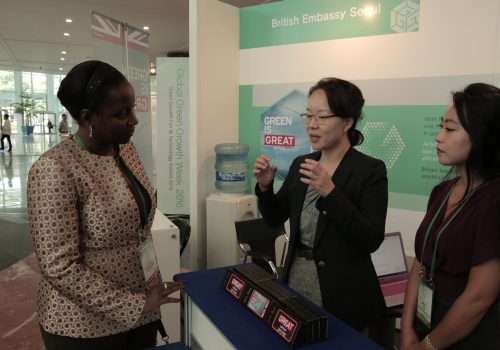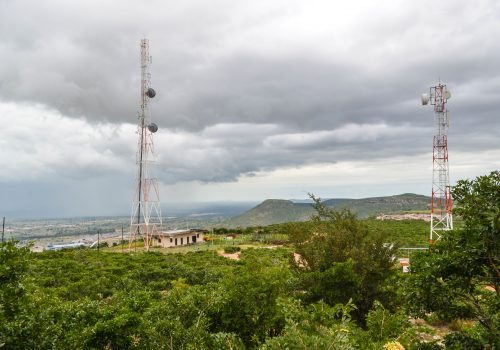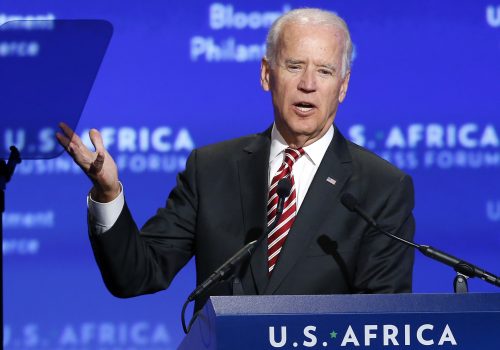On Thursday, May 6, the Africa Center and the Policy Center for the New South (PCNS) hosted a partnered event to launch twin reports exploring the theme of technology and its impact on Africa’s political and economic future.
The event was moderated by Atlantic Council GeoTech Center Deputy Director and Senior Fellow Ms. Stephanie Wander, who opened the event with a word on the timeliness of the conversation before passing to the report authors.
Presenting his report, The Impact of New Technologies on Employment and the Workforce: What Are the Implications for Developing Countries, Especially in Africa?, PCNS Economist Mr. Hamza Saoudi highlighted that historically technological progress has had positive impacts on the labor market, while noting that disruptions will tend to be more severe in advanced economies in the near future. Still, African markets will be pressed to adapt, as new technologies could foster inclusive growth on the continent.
Atlantic Council Senior Fellow Dr. Aleksandra Gadzala Tirziu’s report, Partnering for Africa’s Digital Future: Opportunities for the United States, South Korea, and India, added a more geopolitical perspective, touching on US-China tech competition and the impact on African countries. She argued that an embrace of allies, like India and South Korea, could advance US interests, and that cooperation on creatives and space could be particularly fruitful, contributing to US soft power while leaning into sectors of comparative advantage.
In the moderated discussion that ensued, PCNS Senior Fellow Mr. Jalal Abdel-Latif offered insight on the need for ICT-enabled agriculture, health, and education sectors across African markets. To him, US engagement will be most beneficial if the American private sector commits to bring its tools and innovation to Africa. Speaking to the topic of great power competition, Eurasia Group Senior Analyst for Global Macro Mr. Ali Wyne noted a rising optimism on Africa and backed up Aleksandra’s contention that middle power diplomacy can be an important means to move away from the China-United States dichotomy.
The discussion would go on to address the impact of COVID-19 and how to best enable African agency, concluding with panelists’ big takeaways: reason for optimism, yet a need for governments to invest in education and training to allow for the benefits of technology to be felt and in an equitable manner.
Missed the event? Watch the webcast below and engage us @ACAfricaCenter or @PolicyCenterNS with any questions, comments, or feedback.



